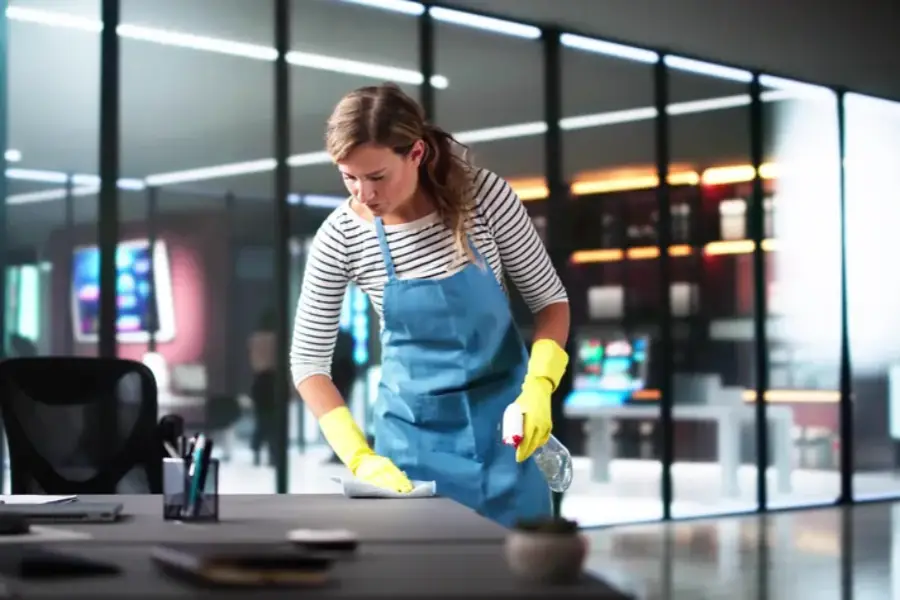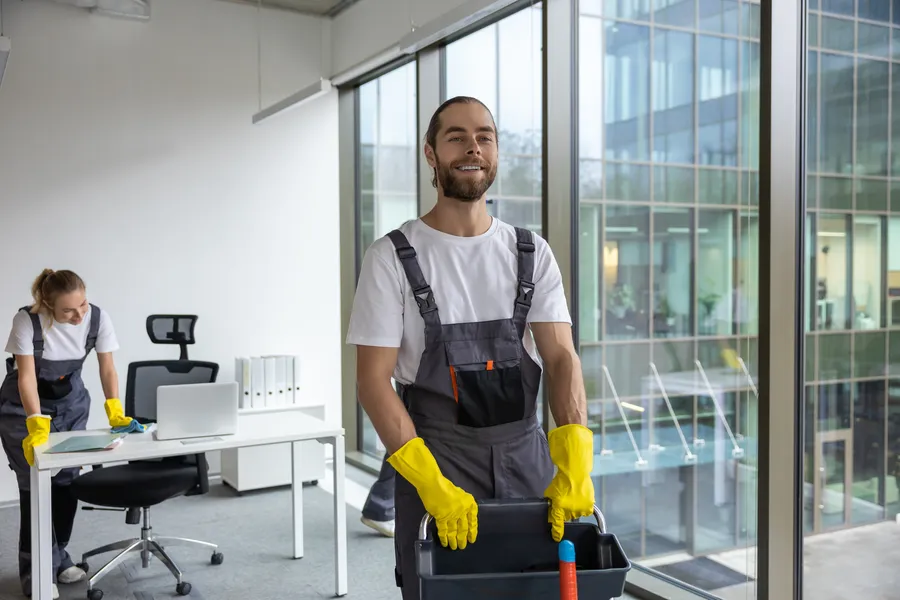Cleaning High-Traffic Areas in Offices Keeps Them Safe and Productive
Keeping an office clean is crucial for both health and productivity. Some areas in an office get dirty faster than others due to high traffic. These areas require frequent attention to ensure a healthy work environment. Understanding which parts of the office need more cleaning can help maintain a pleasant space for everyone. This guide will explore common office areas that require regular cleaning, offering insights into why these spots are so important.

Reception Areas and Lobbies
The reception area is often the first place visitors see when they enter an office. It creates the first impression of your business. A clean lobby reflects professionalism and care. Regularly cleaning this space ensures it stays inviting and welcoming. Dusting surfaces, vacuuming floors, and wiping down furniture are essential tasks here. These actions help eliminate germs and allergens that accumulate quickly in high-traffic zones.
Restrooms: High Priority Spots
Restrooms are critical areas in terms of hygiene. They must be cleaned frequently to avoid unpleasant odors and bacteria buildup. Regular sanitization of toilets, sinks, and floors is necessary to maintain a safe environment. Many companies opt for professional services to handle this task. Using office cleaning services guarantees thoroughness and expertise, ensuring these spaces meet health standards.
Kitchen and Break Room Cleanliness
The kitchen and break room are where employees gather for meals and breaks. These areas can quickly become messy with food spills and trash. Keeping them clean is vital to prevent pests and odors. Daily cleaning routines should include wiping countertops, emptying trash bins, and sanitizing tables. Utilizing office cleaning services can ensure these tasks are done consistently, keeping the area pleasant for all staff members.
Workstations and Desk Areas
Individual workstations can harbor dust and germs, especially on keyboards, mice, and phones. Employees spend significant time at their desks, making cleanliness here a priority. Regular dusting and disinfecting can help reduce illness among staff. Encouraging employees to tidy their own spaces daily also contributes to overall cleanliness. Providing cleaning supplies such as wipes near workstations can make this easier.
Conference Rooms Require Attention
Conference rooms host meetings and presentations, making them another high-use area. These rooms need frequent cleaning to remain presentable and functional. Wiping down tables, chairs, and electronic equipment keeps these spaces ready for use at any time. Scheduling professional cleaning after big meetings or events helps manage dirt accumulation effectively.
Hallways and Stairwells: the Busy Paths
Hallways and stairwells experience constant foot traffic throughout the day. As people move between offices and other locations, dirt from outside gets tracked inside. Regular sweeping and mopping of these areas are essential to keep them tidy. Attention to detail in these transitional spaces prevents slips and improves air quality within the building.
Importance of Routine Maintenance
Routine maintenance plays a key role in office cleanliness. When you understand which areas need more attention, it’s easier to plan effective cleaning schedules. Routine checks help identify problem spots before they escalate. By prioritizing these common areas, you create a healthier environment that supports productivity and wellbeing for everyone.

Your Partner for Reliable Cleaning Solutions
Every office needs consistent maintenance to stay at its best. If you’re looking for reliable solutions, consider reaching out to Fremont Janitorial for expert assistance. Our team operates throughout Fremont, CA, delivering top-tier service customized to your needs. Call us today at (510) 309-3661 to discuss how we can support your office’s cleanliness goals.
